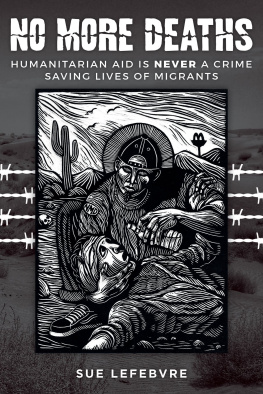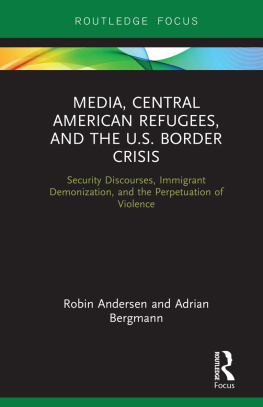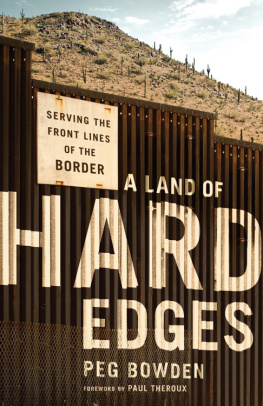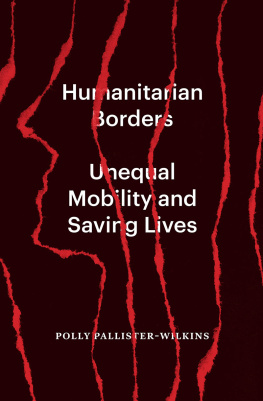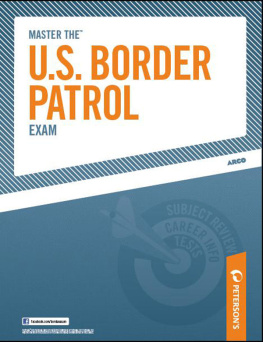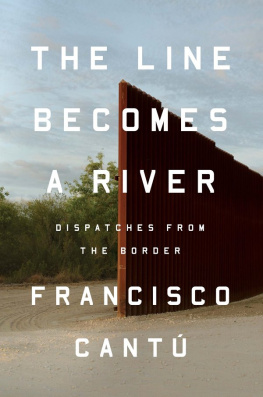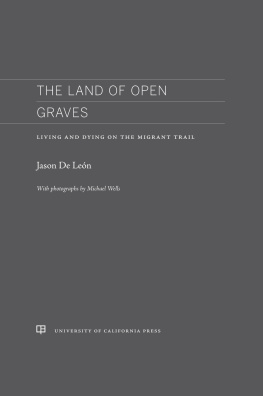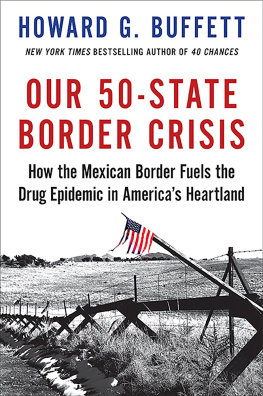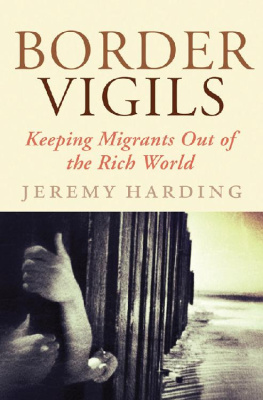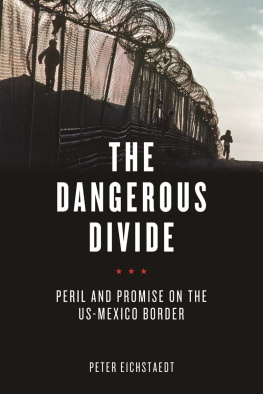Table of Contents
Guide
Page List
No More Deaths
No More Deaths
HUMANITARIAN AID IS NEVER A CRIME SAVING LIVES OF MIGRANTS

A Compendium
Sue Lefebvre
Cover art: Carlos Barberena
Santo Pollero (SRO. Toribito Romo)
Linocut Print 2011
Editors: Leah Downing
Derek Rudolf
www.nomoredeaths.org
www.suelefebvre.com
Endorsements:
In the 1980s, the Sanctuary Movement succeeded in protecting tens of thousands of Central American refugees and forcing change in U.S. policy. In 2003, veterans of that movement organized No More Deaths to take the strategies of civil initiative into the desert borderlands to save the lives of migrants and resist U.S. violations of human rights. This book is essential reading for all who are called to solidarity with migrant families and refugees in this time.
The Rev. John Fifeserved as Pastor of Southside Presbyterian Church in Tucson for 35 years. He was co-founder of the 1980s Sanctuary Movement and a founding volunteer with No More Deaths.
For ethical analysis to be relevant, it requires occupying the space where oppression flourishes. As an ethicist, I became a scholar on immigration only after walking with No More Death upon these trails of hope and terror. Lefebvre brings to life the trials and tribulations faced by the least of these. A must read for those seeking a better understanding of the human rights crises on our border.
Dr. Miguel de la Torre, Professor of Social Ethics and Latinx Studies at the Iliff School of Theology in Denver, Colorado
We began the desert work in 2004 with a $25,000 grant from PCUSA as an all-volunteer group walking the trails in Southern Arizona dedicated to ending death and suffering in the desert by providing physical aid and by educating hundreds of volunteers and media from all over the world about the border. Today, we cover hundreds of square miles of desert and reach tens of thousands of potential supporters. Brilliant work that continues to grow every year.
In my view, NMD is by far the best grassroots-organized (and, occasionally, disorganized) group of which I have had the pleasure to be a part. We have the most dedicated, selfless workers and imaginative minds on the border.
The best days of my life (so far) have been spent on the trails around Arivaca, Ajo, and Table Top and at Byrd Camp. It was, indeed, the best work I have ever done.
Steve Johnston, writer, publisher, trail-walker, philosopher
copyright 2019 Sue Lefebvre
All rights reserved. This book or any portion thereof may not be reproduced or used in any manner whatsoever without the express written permission of the publisher except for the use of brief quotations in a book review.
ISBN-13: 9781095045824
Dedicated to humanitarian aid volunteers in Southern Arizona
and
to Gene Lefebvre for our many years in loving relationship
Table of Contents

Gene and Sue Lefebvre in Nogales 2007 (No More Deaths).
This book is written from the perspective of Sue Lefebvre and her husband Gene, No More Deaths volunteers from its beginning in late 2003. As we worked each day, hiking in the desert, volunteering on the border, visiting migrant centers, emailing, planning, attending meetings, fundraising, imagining effective strategies, many other people were doing the same things, but having entirely different day-to-day experiences. Their stories are just as valid as ours; we can only speak for ourselves (and through the voices of the many volunteers who contributed to this book). This book is colored by our personal histories, our No More Deaths experiences, our insights, and our biasesalso, our hopes and dreams for progress toward greater justice and equality as expressed by people of conscience, the goals of our faith communities, the promises of the United States Constitution and the Declarations by United Nations.
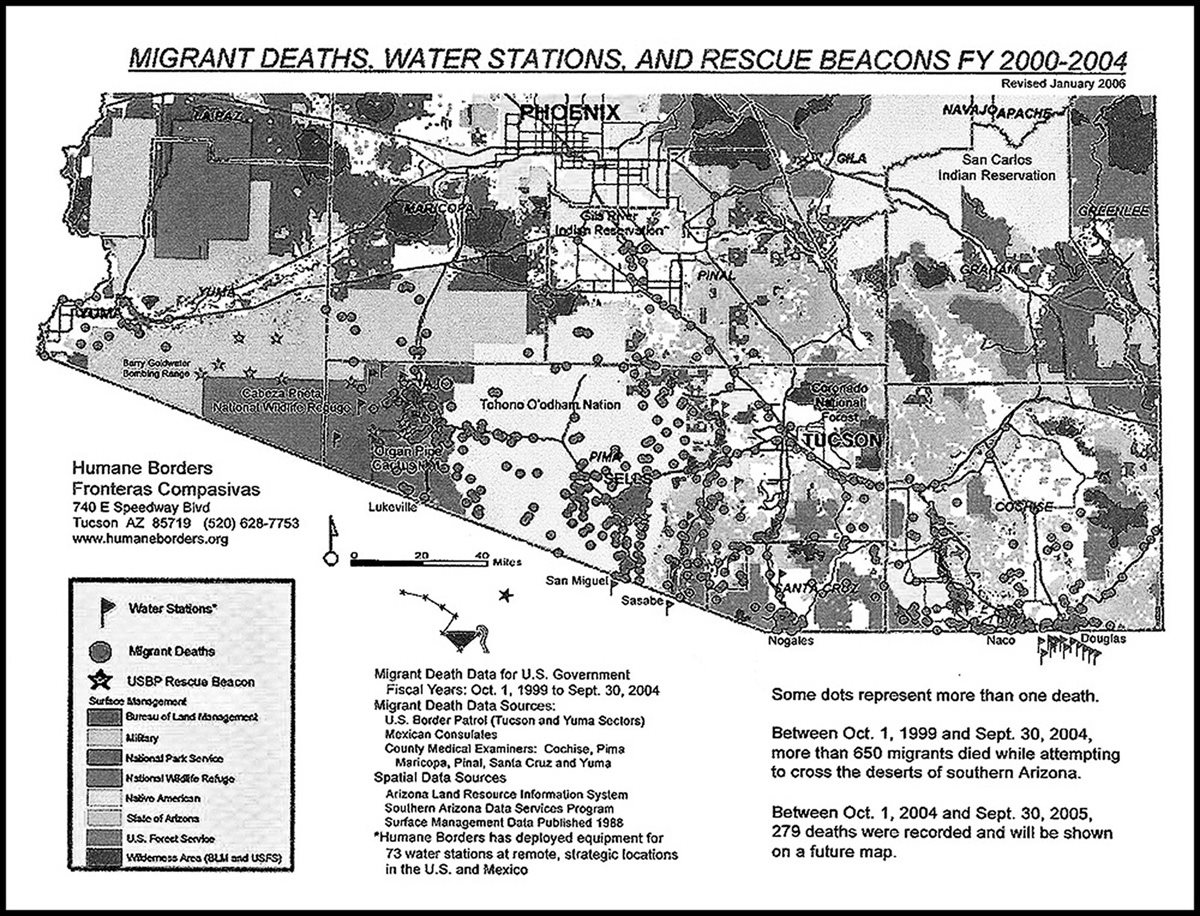
Recovered Human Remains (RHR) in the Arizona Desert
Data for Apprehensions comes from Border Patrol. Data for RHR in Arizona comes from the Pima County Forensic Science Center. It represents Pima and Santa Cruz Counties primarily but may contain data from Pinal, Gila and Graham counties from time to time. As of May 2012, Pima County is under contract to process RHR for Pinal and Cochise Counties. The RHR data is from the area primarily patrolled by the Tucson, Green Valley and Ajo Samaritans, as well as No More Deaths. The data represents much but not all the Tucson Sector.
| BP Fed Year | BP Arizona Apprehensions | Number of RHR In Arizona |
|---|
| 1994-1995 | 139,473 |
| 1995-1996 | 227,529 |
| 1996-1997 | 305,348 |
| 1997-1998 | 272,397 |
| 1998-1999 | 387,406 | 11 |
| 1999-2000 | 470,449 | 29 |
| 2000-2001 | 616,346 | 74 |
| 2001-2002 | 445,675 | 80 |
| 2002-2003 | 333,648 | 134 |
| 2003-2004 | 347,263 | 137 |
| 2004-2005 | 491,771 | 142 |
| 2005-2006 | 539,079 | 219 |
| 2006-2007 | 392,074 | 169 |
| 2007-2008 | 378,239 | 202 |
| 2008-2009 | 317,696 | 171 |
| 2009-2010 | 241,673 | 212 |
| 2010-2011 | 212,202 | 251 |
| 2011-2012 | 123,285 | 177 |
| 2012-2013 | 120,000 | 194 |
| 2013-2014 | 120,939 | 121 |
| 2014-2015 | 87,915 | 133 |
| 2015-2016 | 63,397 | 145 |
| 2016-2017 | 38,657 | 151 |
| 2017-2018 | 52,172 | 123 |
| 2018-2019 | 63,490 | 153 |
______________________
Edgar McCullough, Professor Emeritis, University of Arizona (text modified by author).
www.cpb.gov/newsroom/stats/ofo-sw-border-inadmissables-fy (x).
Op.cit., McCullough.

THIS BOOK ADDRESSES THE CRISIS in the southwestern part of the United States that has desperately needed governmental intervention since NAFTA was enacted in 1994. It documents how, in the meantime, dedicated volunteers have, for more than 15 years, filled the enormous gap left by a negligent government. Additionally, volunteers have provided relevant data to leaders to encourage them to enact immigration reform.
You need to hear this story.
No More Deaths is a humanitarian organization that delivers food, water, and medical aid into the Southern Arizona desert to prevent migrants from dying, and it provides care to repatriated migrants along the border who need a variety of services.
This book chronicles experiences from major efforts of the humanitarian organization (called a movement by many), No More Deaths, from 2004-2019. No More Deaths addresses the political reality that many people dont want migrants from the south to come into the United States. This disapproval is reflected by the fact that since 2004, more than 3,000 Mexicans, Central Americans, and others have died in the Southern Arizona desert. More than 7,000 have died crossing into Arizona, Texas, New Mexico, and California combined. This is an unacceptable outcome of U.S. government policy that forces people into harsh desert terrain for their pilgrimage. Other solutions are possible and far less expensive. Well address some of them in this book.

